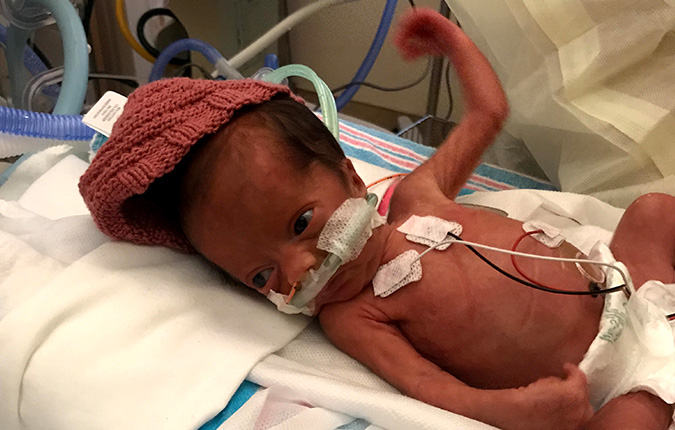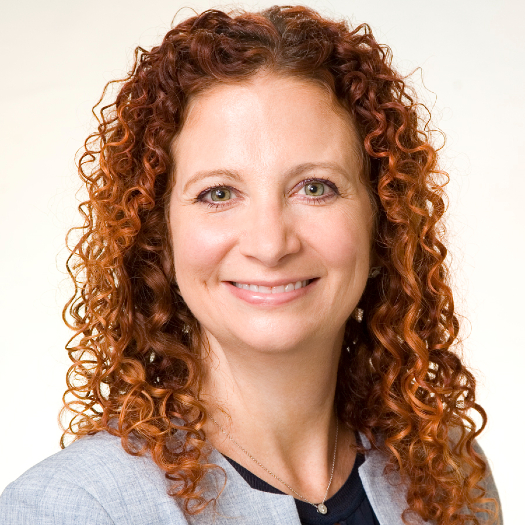Charu noticed at 27 weeks pregnant that her baby had stopped kicking. She and her husband, Pravin, rushed to the hospital. Aasha was born by emergency cesarean section at Washington Hospital Center. She lost a lot of blood, but was within the age range for a preterm baby to survive. Charu and Pravin brought her to Children’s National Hospital.
Tiny Aasha slept, moved and responded in some ways to her mom and dad while in our neonatal intensive care unit. Neonatologist and perinatal medicine expert Panagiotis Kratimenos made sure they understood the grave nature of the situation, including that much of the bleeding had occurred in her brain. “It was the most difficult time I could imagine,” recalls Charu. “But it was also amazing to witness the compassion and care of these doctors and nurses who did whatever they could for our baby. Dr. Kratimenos took us under his wing. He explained the impact of the bleeding on her brain and what it meant for her pain and her future.”
Charu and Pravin made the difficult decision to take Aasha off life support on her 10th day. They also made another important decision: to enable their daughter to contribute to newborn research by donating her organs.
“We had a lot of trust in him,” Pravin says. “Dr. Kratimenos made it clear that Aasha’s life and her contribution was very valuable and important. We didn’t debate the decision to donate. Instead, we said, ‘Yes, Aasha will help other babies.’”
Dr. Kratimenos says this generous act has given researchers at Children’s National a rare opportunity to study up close the fragile developing human brain. “The exact mechanisms of the neonatal brain are a dark hole when it comes to what we know,” he says. “When Charu and Pravin made this extraordinary contribution, they offered hope to the preterm babies of the entire world.”

